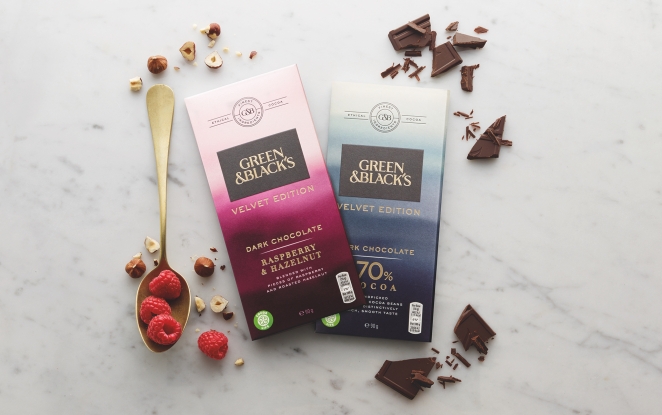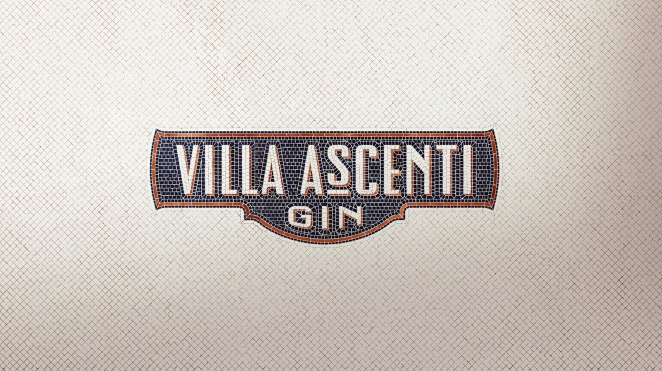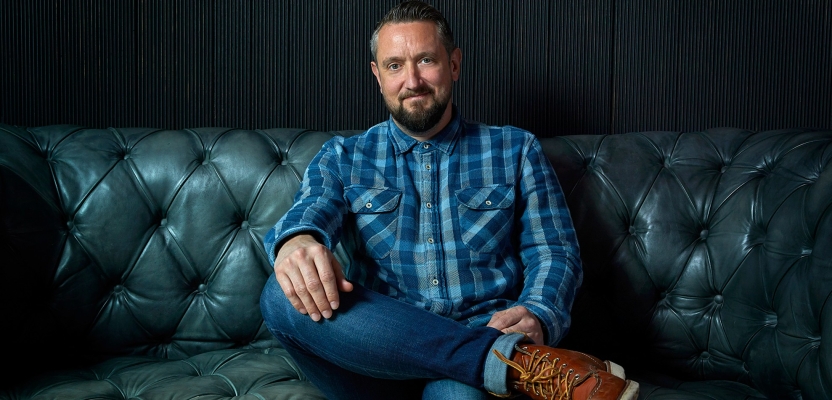Tell us a bit about your role! Is there a “typical” day?
Anyone thinking of getting into the creative industry should abandon the concept of a “typical” day. It’s a huge part of why, after more than twenty-five years in the industry, I’m learning something new every single day.
My role as Executive Creative Director is so multi-faceted - from overseeing all of the creative, building strong client relationships, and making sure that the team is happy and fulfilled, to planning for future growth and new business opportunities. There’s never a dull day and that’s what you have to love, or you better look for another career.
What was the biggest challenge in getting to your current position?
I feel the biggest challenge has been understanding the different learning curves you have to go through as you become more senior. As a creative, you spend most of your formative years striving for excellence and getting your work in front of clients.
You develop a thick skin, understand what it is like to succeed (and fail), and how to develop the necessary skills to advance. But when you become more senior and get promoted to more managerial positions, the gear shift is from a “doer” and executor of creative to someone who needs to tease and nurture that work from others.
It is a process every creative director reading this will understand. It doesn’t happen overnight. You have to trust your experience and your instincts, surround yourself with talent greater than your own and understand that the best work is built together.
What is your personal background and what role did it play in your career?

I was fortunate enough to know what industry I wanted to go into at a very young age. I was extremely fortunate to have a great teacher at school who recognized where my passions lay and encouraged me to go to art school. Surprisingly though, it wasn’t my art teacher, it was my English teacher.
I was always fascinated at how design had the ability to distil and capture a complex story in a way that cut through. It just clicked with my brain in a way that a lot of things at school just didn’t stick.
What is your biggest career-related win? What is your biggest loss?
Man, this is impossible to answer. I would say in recent years it would be winning an important pitch for Diageo North America (the project hasn’t launched yet so I can’t reveal the brand but watch this space)! I was still in London at the time, but I knew I was heading to New York to head up the creative here.
Back then, we didn’t have Diageo as an account in New York, so I was determined to work with them Stateside and continue the relationship that I was so enjoying. Winning gave me the chance to do that and now, our relationship with Diageo continues to go from strength to strength.
Biggest loss… they all hurt to be honest. I’m naturally very passionate and competitive about the work we produce. When it doesn’t land, it stings, but you’ve got to make sure that you learn from the experience and grow stronger as a team. Sorry, ducking the question slightly.
Which individuals and/or agencies do you gain inspiration from? Do you have any heroes in the industry?

My hero is (and always was) Saul Bass. I was lucky enough to attend a lecture of his a very long time ago in London and I was completely blown away by his approach to storytelling and how his work stretched into so many disciplines.
I feel creatives can learn so much from him today – mainly, don’t be so quick to pigeonhole yourself into being one kind of creative. Be open.
If you could go back to your teenage years, would you have done things differently? Do you have any regrets?
Absolutely not. Well actually, maybe one thing – I wish that I had travelled a little more when I was younger. It’s tough as you don’t tend to have much money, well I didn’t that’s for sure, but it’s a time of your life where you have the opportunity to spend an extended amount of time experiencing other cultures.
When you start your career, it’s still possible, but you have the restriction of vacation allowance. I still travel as much as I can. It revives the soul and makes you grow in ways you can’t imagine.
If you weren’t in your current industry, what would you be doing?
I have always loved photography. I’d love to be a National Geographic photographer, combining passions like food and travel. As a side hustle, I’d have an antique shop specializing in modern antiques from the mid-century onwards. Scouring the world for amazing design sounds pretty good to me.
What’s your one big dream for the future of the industry?
To focus on craft and ideas and allow them to be recognized and celebrated.
What are your top tips for aspiring creative professionals?

Be a sponge. Identify your strengths and weaknesses and learn from those around you. We learn and grow in this industry by osmosis, which for me is something that remote working and the pandemic has caused the most concern.
When I was coming up in the industry, I learnt everything from my peers and by having amazing colleagues and mentors who would show you how to craft something or just be that ear that’s needed to help you with an idea sometimes. I don’t know how you replicate that experience through a screen.
Something else I would encourage is to develop your strengths in the written word. Of course we are visual people, that is what drives us and pulls us into this industry, but for me some of the best creatives I work with are very good writers. Get used to communicating your ideas in written form.
What are your top tips for other creative leaders?
Number one is to surround yourself with talent that you admire and people who can do what you can’t. It’s not about YOU, it’s about the quality of the work and its success. There’s no room for narcissism.
Second is to create a culture where everyone cares about the work, but more importantly, the people around them. The best agencies do this and I believe that comes from respect and making sure you cross the line together.
When you think about your team, what is the thing that matters to you the most?

This follows on from previous answer to be honest. I would hope that when you speak to my team, they would say that they feel empowered and supported. My biggest success in my eighteen years at Bulletproof is the feeling that I have played a part in the development of others.
We have a wonderful legacy of developing creatives and these people staying in the agency to grow. I can point to individuals around the global studios who have been with us a long time - great creative leaders that started with us as juniors. That’s an awesome feeling.
Do you have any websites, books or resources you would recommend?
‘A smile in the mind. Witty thinking in graphic design’ by Beryl McAlhone and Greg Quinton. This book is timeless, it came out the year I graduated from university, and the thinking that it inspires is just as relevant today as it was then.
I also love two books by Paul Arden who was a creative director at Saatchi and Saatchi - ‘Whatever You Think, Think The Opposite’ and ‘It's Not How Good You Are, It's How Good You Want To Be’. There are some real nuggets of wisdom in these which I still put into my practice every day.





Rob Nielsen February 7th, 2023, in the morning
Wonderful insights and totally agree with everything Tony says. Excellent interview.